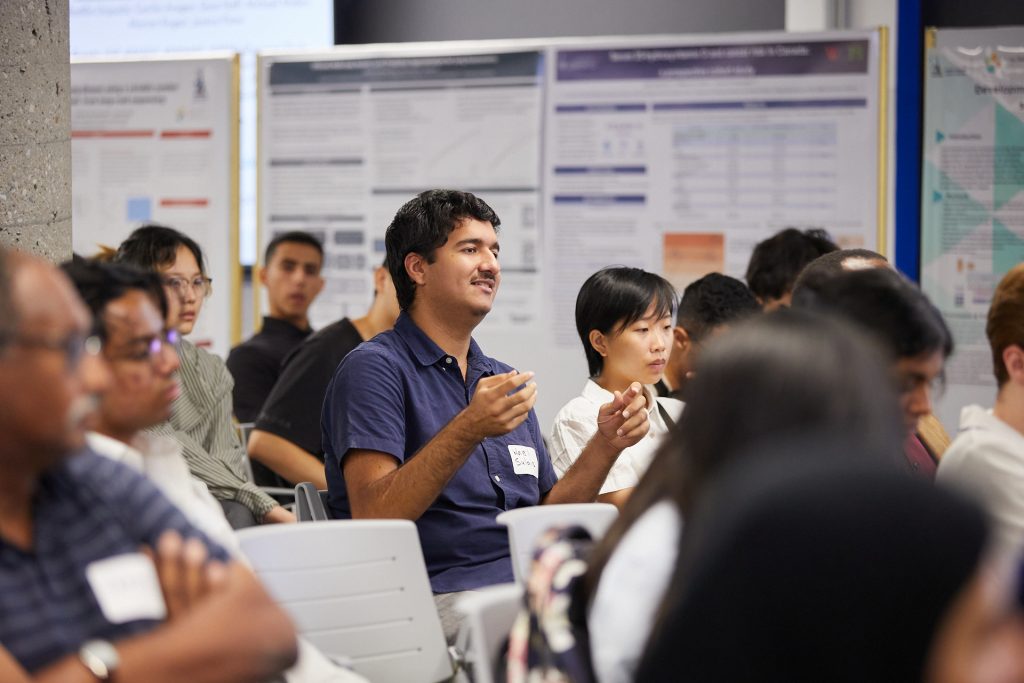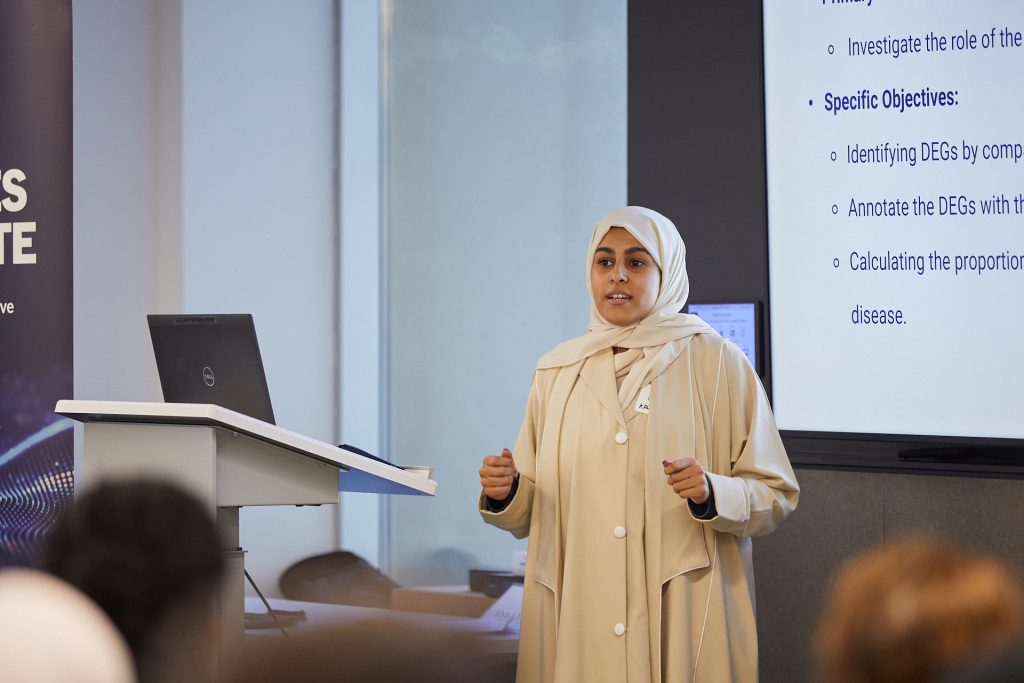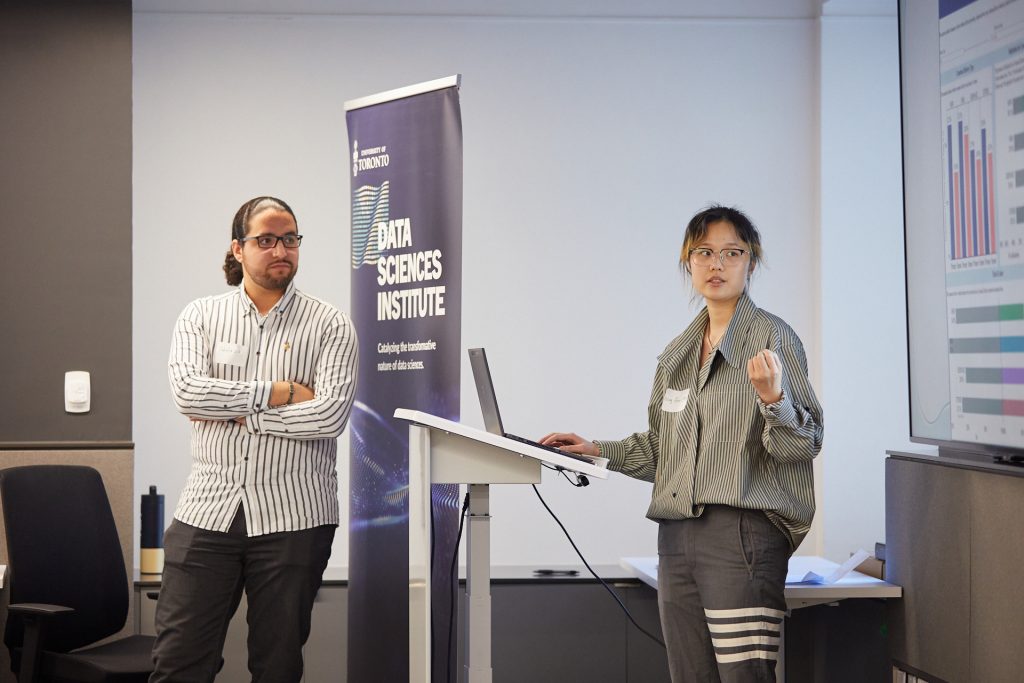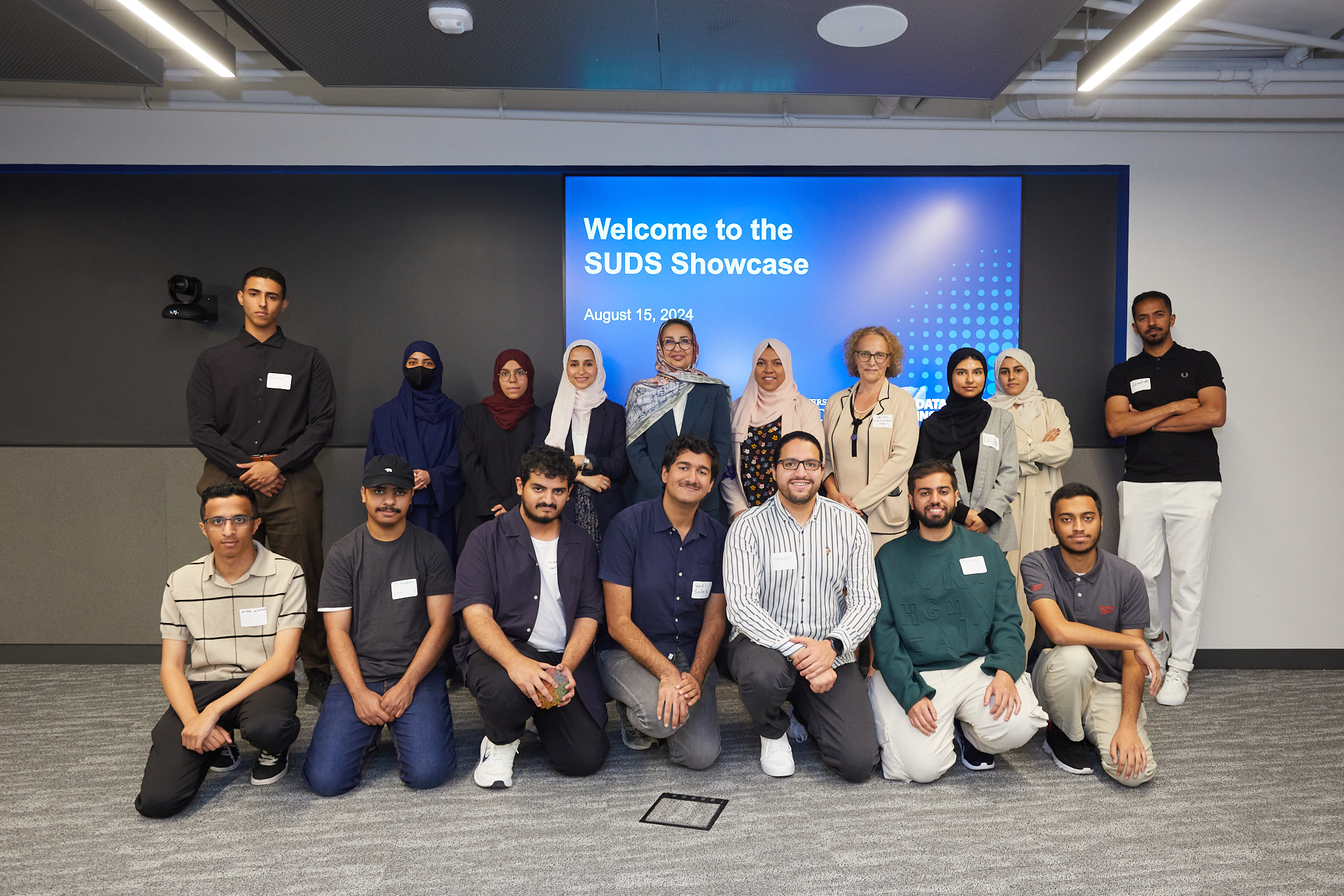Photo: 14 KAUST scholars at 2024 SUDS Showcase with Kingdom of Saudi Arabia’s Ambassador to Canada, Her Excellency Amal Yahya al-Moallimi
By: Cormac Rea
Photos: Harry Choi Photography
In a groundbreaking initiative that bridges continents and fosters global collaboration, the University of Toronto’s Data Sciences Institute (DSI) partnered with the King Abdullah University of Science and Technology l(KAUST) Academy to provide 14 exceptional Saudi scholars with the opportunity to engage in cutting-edge data science research in the 2024 cohort of the Summer Undergraduate Data Science (SUDS) Research Program.
Not simply an educational exchange, the DSI-KAUST partnership is an investment in the future of Saudi Arabia, aimed at cultivating a new generation of leaders equipped with the skills and knowledge to drive innovation and national development.

“The DSI-KAUST partnership is a catalyst for innovation, empowering students from both institutions to lead in data science and solve real-world challenges,” said KAUST Academy Director, Sultan Albarakati.
The scholars, recipients of prestigious awards from KAUST, were selected through a highly competitive process, ensuring that only the highest performing students were chosen to represent the Kingdom on a global stage.
KAUST specifically sought out the University of Toronto for this collaboration due to its world-renowned ranking in data science.
“The DSI SUDS program at U of T selects data science research opportunities, providing a comprehensive cohort program that includes both data science and professional development skills,” explained DSI Executive Director, Lisa Strug.
“KAUST requested that its scholars focus on data science and bioinformatics research projects, aligning with the strategic needs of Saudi Arabia. The DSI-KAUST partnership underscores a mutual commitment to nurturing the next generation of global data scientists.”

The work of KAUST Academy and SUDS scholar, Fatemah Alsolaiman, focused on evaluating transcript-guided cell segmentation in GBM-derived single-molecule spatial transcriptomics data. The main goal was to enhance an understanding of glioblastoma (GBM) by analyzing gene expression, cell patterns, and the structure and organization of tumor cells through advanced cell segmentation methods.
“As an international SUDS scholar, I feel incredibly fortunate to be part of this institute and the University of Toronto,” said Alsolaiman.
“I have had the opportunity to work with expert researchers such as Dr. Bader and Dr. Shamini at the Bader Lab within the Terrence Donnelly Centre for Cellular & Biomolecular Research. Their support and encouragement have been invaluable, motivating me to push the boundaries of my research.”
Scholar Faisal Alkulaib’s project entitled Enhancing Named Entity Normalization in Biofactoid Using NLP Techniquesaimed to improve the accuracy of bioentity normalization in the Biofactoid web tool by leveraging natural language processing (NLPs) to reduce common errors. This enhancement is crucial for creating reliable, curated biomedical data, which in turn can provide deeper insights into cellular processes and potential therapeutic opportunities.
“Participating in this program as a SUDS Scholar from KAUST has been incredibly enriching,” said Alkulaib. “The diverse perspectives boosted my research skills and network—and yes, my caffeine addiction too!”

Rakan Alsallum’s research project focused on the search for novel DNA viruses in Alzheimer’s disease brains, particularly within the Circoviridae family. His work involves identifying the jelly roll hallmark structure, one of the most conserved structures in DNA viruses, as a primary indicator for novel Circoviridae. By screening all publicly available sequencing data, Rakan aims to test the hypothesis that a previously unidentified Circovirus may be the cause of Alzheimer’s Disease.
“As an international SUDS Scholar from KAUST, I initially thought it would take a long time to adapt, especially since it was my first time traveling outside of Saudi Arabia,” said Alsallum.
“However, the supportive community at DSI and everyone in the RNAlab made me feel just like home.”
“The KAUST Academy/ DSI SUDS students have been excellent,” reflected DSI supervisor, Gary Bader.
“Many of them are experiencing their first research internship and they are learning diverse skills, including in data science and communicating their work to others.”
The successful 2024 collaboration between KAUST and U of T sets a strong foundation for future partnerships.
KAUST is already looking ahead to 2025, with plans to send another group of scholars to continue this impactful program at DSI – further solidifying a shared commitment to fostering global talent in the data sciences industry.


